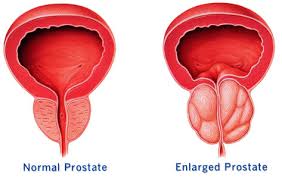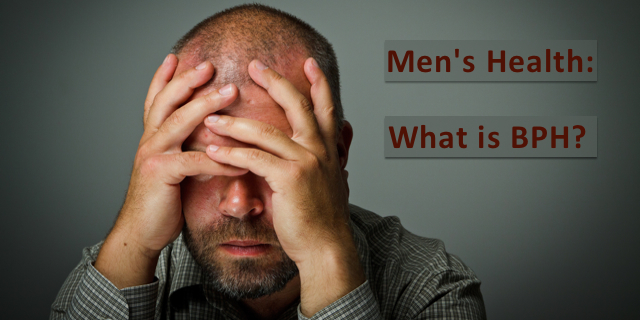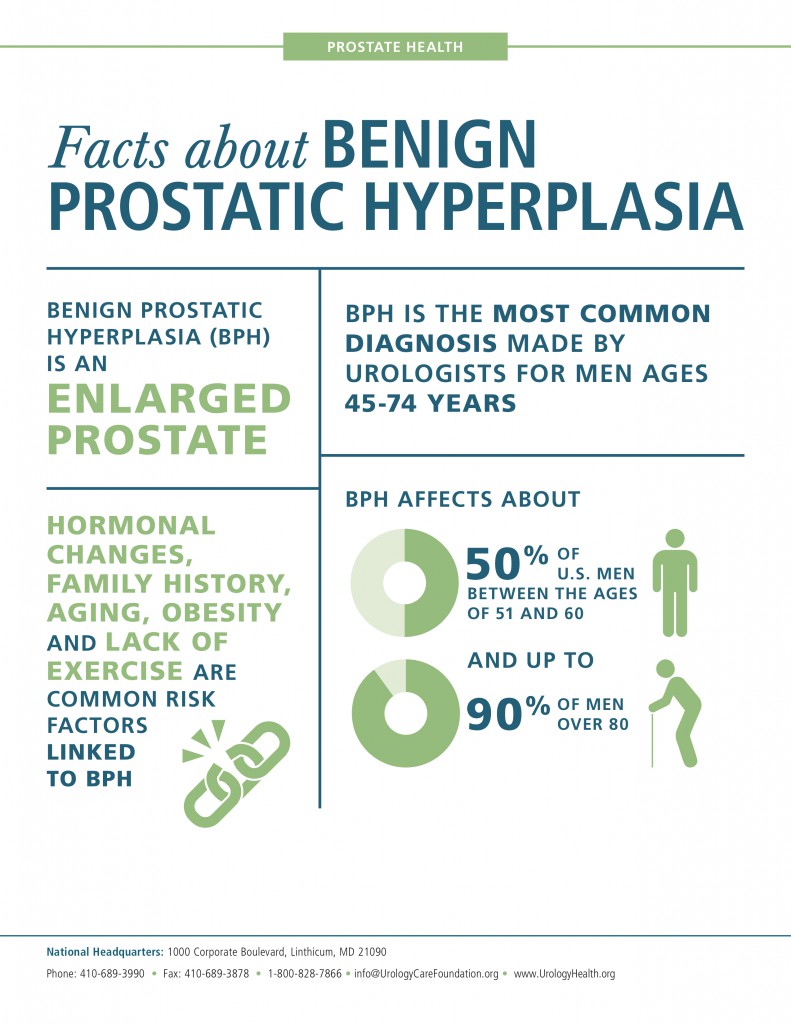It’s tough when you have a disorder people aren’t comfortable talking about. Benign Prostatic Hyperplasia (BPH) is one of those conditions. So let’s get comfortable with it.
 What is BPH?
What is BPH?
Okay. The name of this condition is a clue to what it means and why it’s not discussed …benign means that it is not cancer, prostatic means it has to do with the prostate gland and hyperplasia means enlarged.
…benign means that it is not cancer, prostatic means it has to do with the prostate gland and hyperplasia means enlarged.
The prostate gland is part of the male reproductive system and is located at the place where the bladder and the tube called the urethra meet. The urethra carries urine out of the body.
When the prostate grows too large, it acts like a monkey wrench tightening around a pipe, squeezing the urethra, slowing the flow of urine out of the body.
When urine stays in the bladder and isn’t emptied out, it causes problems.
 Symptoms Revolve Around Urination
Symptoms Revolve Around Urination
One of the main symptoms of BPH needing to go to the bathroom often. Another symptom is urgency or the feeling that you’ve got to go NOW. You may have trouble getting urine to come out or it seems to dribble out, even feeling like you are pushing and straining to get the urine out. If you can’t urinate at all, you need to seek help immediately.

It’s Common
A lot of men have BPH. About 50% of the men over 50 have it and around 90% of men in their 80s have BPH. So you are not alone.
 Uncertain Cause
Uncertain Cause
In fact, although the cause is not altogether understood, aging seems to be a prime suspect. It also runs in families. Being overweight and not physically active can increase the likelihood of developing BPH.
BPH may be related to hormones. You may not be aware of this but men produce both testosterone and estrogen. As men age they produce less testosterone. One theory is that the change in proportions of estrogen to testosterone may influence the prostate cell growth. Another idea is that dihydrotestosterone (DHT), a hormone involved in prostate development, may be a factor. Men who don’t produce DHT do not have BPH.
 Requires Treatment
Requires Treatment
Left untreated, BPH can cause bladder damage, frequent bladder infections and stones and kidney damage. The physician responsible for providing help with BPH is a urologist. Urologists have several treatment strategies to address the disorder based on its severity. One is to wait and be watched by your urologist. This is for people who are not being bothered by their symptoms. For more severe cases, there are medications, several minimally invasive surgeries and several surgical options available.
The Bottom Line
If you have BPH, you are not alone. It is common and treatable. If you are having symptoms, forget about embarrassment and go to see your doctor. Sign up with Medivizor for personalized health information updates sent to your email.
Here’s an infographic from the Urology Care Foundation.







What is the success rate for Green Light Laser Prostate Surgery?
GreenLight Laser surgery is a minimally-invasive surgery that uses a high-energy laser to vaporize some of the prostate tissue blocking urine flow. According to recent studies, the GreenLight photoselective vaporization of the prostate (PVP) has a similar effectiveness to traditional transurethral resection of the prostate (TURP). It is estimated that at 5 years, GreenLight PVP has a success rate of over 75%.
I think the question need to be answered
Thanks for the reminder. Answered now.
Is blood in semen a common symptom of BPH?